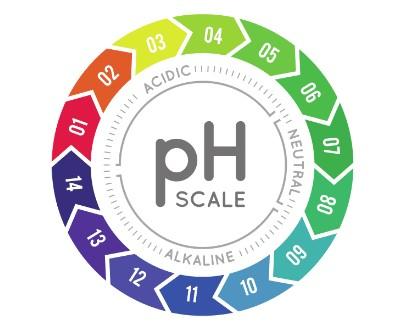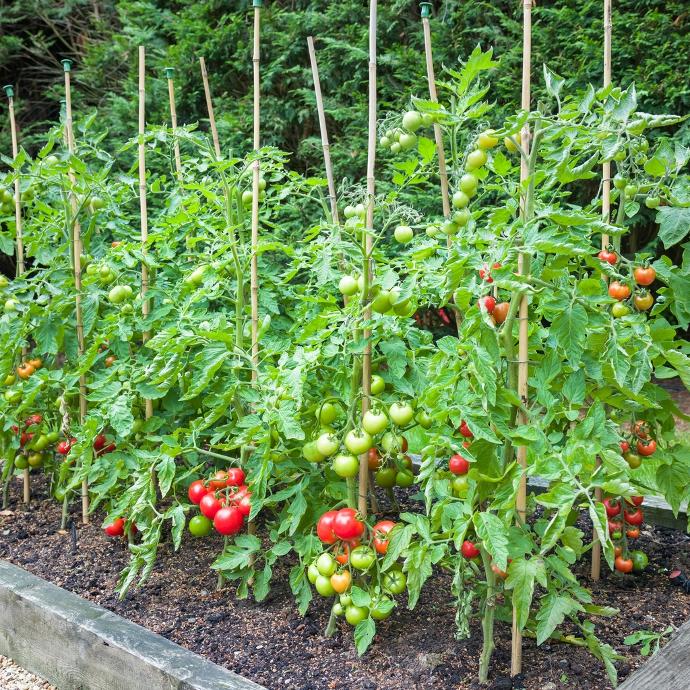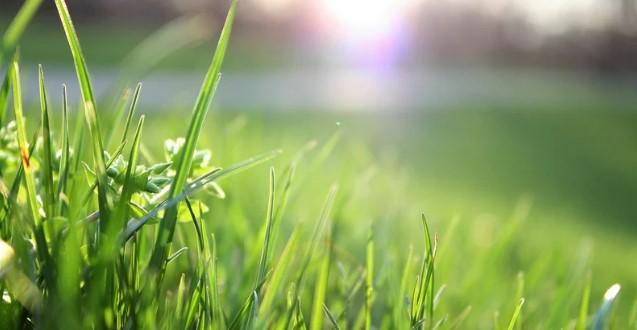Unleashing the Power of Mushroom Compost
When it comes to nourishing your garden, mushroom compost is an often overlooked yet highly beneficial soil amendment. Mushroom compost, also known as mushroom soil or spent mushroom substrate, is the leftover growing medium after a crop of mushrooms has been harvested. Its application reaches far and wide, making it a versatile soil conditioner for various gardening projects. When enriching your vegetable garden, mushroom compost is an effective, sustainable, and economical option that promotes the thriving of plants and the overall fertility of your garden. This will be a informative article in regards to the superhero like nature of mushroom compost as well as highlighting the high quality composts provided at Daisy's Garden Supplies.
What is Mushroom Compost and How is it Made?
Mushroom compost is an organic fertilizer often used to boost vegetable gardens. It's made through composting organic materials like straw, wood shavings, animal manures, gypsum, and peatmoss. The compost piles are left to decompose, generating heat that sanitizes the mix.
After being used in mushroom cultivation, this compost is recycled and made available for gardeners. While most nutrients are absorbed by the mushrooms, the compost still retains abundant organic matter and beneficial microbes ideal for enriching garden soil.
Mushroom compost benefits your garden by enriching soil, providing nutrients for plants, and improving soil structure, friability, and permeability. It boosts root growth and soil's water-holding capacity, ensuring adequate moisture for plants.
To use, just incorporate a high-quality mushroom compost, like Daisy's Mushroom Compost, into your garden soil. You'll soon notice enhanced plant health and growth.
The Importance of pH in Mushroom Compost:
- pH is a measure of acidity or alkalinity and plays a significant role in the health and productivity of soil. The pH scale ranges from 0 to 14, with 7 being neutral. Soils with a pH below 7 are acidic, and those above 7 are alkaline.
- Mushroom compost typically has a pH that ranges from 6.5 to 8, making it slightly acidic to mildly alkaline. This is because the materials used in its composition, such as straw and manures, are often alkaline, and the composting process itself tends to neutralize any acidity. The alkalinity of mushroom compost can be beneficial in balancing out acidic soils, which are common in certain regions. This can be particularly useful for growing plants that prefer a more neutral to slightly alkaline soil environment.
- However, if you're growing acid-loving plants, you may need to monitor the pH levels closely and adjust them accordingly when using mushroom compost. You can lower the pH of overly alkaline soil by incorporating sulfur or organic materials like pine needles or peat moss, which are naturally acidic.
- It's important to test your soil's pH before applying mushroom compost or any other amendments. Soil testing kits are readily available and can give you a good idea of your soil's current pH level and nutrient content, helping you make informed decisions about soil amendments.

Mushroom Compost Benefits:
- Unique Soil Structure: Mushroom compost improves soil aeration, drainage, and water retention. This makes the soil more manageable or friable, and promotes the healthy growth of your plants by allowing their roots to grow unimpeded.
- Biodiverse Nutrient Content: While it has given up a significant portion of its nutrients to the mushrooms it was used to cultivate, mushroom compost still retains a good amount of nutrients. It enriches the soil with essential elements such as nitrogen, phosphorus, and potassium that support healthy plant growth.
- Improves Plant Health: The use of mushroom compost can increase resistance to plant diseases and pests. This means healthier plants and potentially higher yields for your garden.
- Positive Environmental impacts: Mushroom compost is a sustainable choice. By utilizing agricultural waste like straw, wood shavings, and animal manures, it helps to reduce waste and lower your carbon footprint.
- Acidic pH: Mushroom compost typically has a slightly acidic to mildly alkaline pH. This can be beneficial for neutralizing acidic soils, making it especially useful in regions where acidic soil conditions are prevalent.
Mushroom Compost for Vegetables
Certain vegetables particularly thrive in mushroom compost due to its rich nutrient content. These include tomatoes, zucchinis, pumpkins, and root vegetables such as carrots and radishes. The nutrients in mushroom compost can help stimulate growth, increase yield, and enhance the taste of your homegrown produce.

How to Use Mushroom Compost
in Your Veggie Garden:
1. Perform a Soil Test: Before applying any amendments, it's important to understand your soil's current state. Soil testing kits are available online or at garden centers, and they can provide you with information about your soil's pH and nutrient content. This will help you determine how much mushroom compost you need to add.
2. Prepare Your Garden Bed: Clear your vegetable garden of any weeds or debris. This ensures that your mushroom compost will mix well with your soil without any obstructions.
3. Apply the Mushroom Compost: Spread a layer of mushroom compost over the garden bed. The recommended amount can vary, but generally, a layer of 5 to 8 cm is sufficient for enriching the soil without overwhelming your plants.
4. Mix the Compost into Your Soil: Use a garden fork or tiller to mix the mushroom compost into the top layer of soil. This process, known as 'double digging', helps integrate the compost evenly and exposes the soil to air, improving its structure and allowing roots to penetrate deeper.
5. Plant Your Vegetables: After the compost has been thoroughly mixed into the soil, you can begin planting. If you're using seedlings, make sure to space them according to the recommended spacing for their species. If you're sowing seeds directly, follow the instructions on the seed packet for the best results.
6. Water Your Garden: Once your vegetables are planted, water the garden thoroughly. This helps to settle the compost and soil around the plant roots, and also kick-starts the process of nutrient release from the compost.
7. Monitor and Maintain: Keep an eye on your garden as your plants grow. You might need to add more compost or water based on how your plants respond. If your plants appear healthy and are growing well, you've likely struck the right balance.
Can you use Mushroom Compost for lawns?
Mushroom compost is not recommended for use in lawns due to the organic matter decomposing and leaving holes throughout.

Summary:
Mushroom compost is a versatile, nutrient-rich soil amendment that can provide a significant boost to your gardening projects. Whether you're enhancing your vegetable garden or kickstart a new landscaping project, don't overlook this robust, cost-effective solution. Visit Daisy's Garden Supplies today and explore our wide range of quality gardening products.
Daisy’s Volume Calculator and Delivery Services:
Calculating the amount of compost you need can be challenging, but with Daisy's volume calculator, it's made easy. Just enter the length, width, and depth of your garden area, and the calculator will do the rest. Once you know the volume of compost you need, you can take advantage of Daisy's delivery service to get your mushroom compost delivered right to your doorstep. No matter how big or small your order, Daisy’s Garden has a delivery solution for you.
About the Authors

Harley Thompson
Harley is a second-generation journalist with a passion for gardening and a keen eye for detail. Currently studying a double degree of Commerce and International relations at Monash University, Harley loves learning new things. He specialises in creating engaging content about garden advice, using experience in store, with our team and customers. His writing blends his academic knowledge with practical experience, offering informative and inspiring articles.

Greg Fitzgerald
Greg Fitzgerald is a qualified horticulturalist with more than 30 years in the industry and 16 years at Daisy's Garden Supplies. He manages production and procurement for all our products, ensuring high-quality gardens and landscapes for our customers. His vast experience and qualification in horticulture make him a key asset to Daisy's. He offers valuable insights and a wealth of knowledge in terms of mulches, soils, pebbles and rocks, composts and many other products.